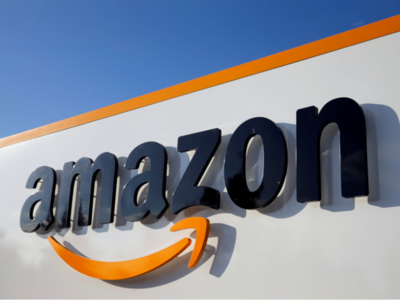
BENGALURU: Amazon has seen the ‘biggest impact’ of the virus outbreak in India among its international markets owing to the Indian government allowing the sale of only essentials through e-commerce, its CFO Brian Olsavsky said during the earnings call on Friday, even as its global sales led by home market US hit a record high. This comes when e-tailers in India have been upset, especially since last week -- when the government allowed offline stores to open gradually and sell all items. E-commerce companies are still not allowed to sell non-essentials items. The extended lockdown is supposed to be lifted after May 3 but the government is expected to issue guidelines on the same.
Separately, data sourced last week from Marketplace Pulse -- which tracks Amazon marketplaces globally, showed overall sales were down by 80-90% on Amazon India compared to pre-lockdown days. The data further shows a sharp decline in sales when compared against the last festive season sales and Christmas.
“I think the biggest impact internationally has been in India, where of course, we, similar to other companies in India, we're now only fulfilling our essential goods such as grocery. So that's cut back a lot on our offering, and we will further expand when the Indian government announces that we're allowed to resume operations. So we're in a bit of a holding pattern except for grocery in India,” Olsavsky said. On Thursday, Amazon India head Amit Agarwal had tweeted urging the government to open up e-commerce for all goods and not just essentials. Amazon India did not respond to TOI’s query on India marketplace sales data.
Amazon’s international business, which counts India, saw losses for the quarter growing over four-fold to almost $400 million compared to $90 million during the same quarter last year. Both sales ($19 billion) and loss ($398 million)- were down on a sequential basis when compared to the quarter ending December 2019, when it reported sales of close to $24 billion and loss of $617 million.
Typically, grocery and other essential items contribute about 10% of overall sales for e-tailers here. In its April 20 edition, TOI reported quoting estimates from Forrester that e-commerce growth in India could fall to zero after the government changed its stance of allowing the sale of non-essentials online. Earlier this week, the company also rolled out a new credit facility for consumers for their grocery purchases and utility bills amid a liquidity crunch.
Globally, Amazon recorded 26% growth in sales at over $75 billion for the quarter and saw less than expected profit at $2.5 billion, down by 29%. Amazon mentioned it could spend as much as $4 billion in the second quarter to tackle virus-related expenses, a significant part of which would be for the safety of its workers. In the US, the company has been facing protests from its warehouse workers who have staged walkouts citing unsafe working conditions.
Separately, data sourced last week from Marketplace Pulse -- which tracks Amazon marketplaces globally, showed overall sales were down by 80-90% on Amazon India compared to pre-lockdown days. The data further shows a sharp decline in sales when compared against the last festive season sales and Christmas.
“I think the biggest impact internationally has been in India, where of course, we, similar to other companies in India, we're now only fulfilling our essential goods such as grocery. So that's cut back a lot on our offering, and we will further expand when the Indian government announces that we're allowed to resume operations. So we're in a bit of a holding pattern except for grocery in India,” Olsavsky said. On Thursday, Amazon India head Amit Agarwal had tweeted urging the government to open up e-commerce for all goods and not just essentials. Amazon India did not respond to TOI’s query on India marketplace sales data.
Amazon’s international business, which counts India, saw losses for the quarter growing over four-fold to almost $400 million compared to $90 million during the same quarter last year. Both sales ($19 billion) and loss ($398 million)- were down on a sequential basis when compared to the quarter ending December 2019, when it reported sales of close to $24 billion and loss of $617 million.
Typically, grocery and other essential items contribute about 10% of overall sales for e-tailers here. In its April 20 edition, TOI reported quoting estimates from Forrester that e-commerce growth in India could fall to zero after the government changed its stance of allowing the sale of non-essentials online. Earlier this week, the company also rolled out a new credit facility for consumers for their grocery purchases and utility bills amid a liquidity crunch.
Globally, Amazon recorded 26% growth in sales at over $75 billion for the quarter and saw less than expected profit at $2.5 billion, down by 29%. Amazon mentioned it could spend as much as $4 billion in the second quarter to tackle virus-related expenses, a significant part of which would be for the safety of its workers. In the US, the company has been facing protests from its warehouse workers who have staged walkouts citing unsafe working conditions.
Download
The Times of India News App for Latest Business News
Subscribe
Start Your Daily Mornings with Times of India Newspaper! Order Now
more from times of india business
Quick Links
ELSS Mutual Funds BenefitsIncome Tax Refund statusWhat is AssochamITR Filing Last DateHome Loan EMI TipsHome Loan Repayment TipsPradhan Mantri Awas YojanaTop UP Loan FeaturesIncrease Home Loan EligibilityHome Loan on PFTax Saving Fixed DepositLink Aadhaar with ITRAtal Pension YojanaNita AmbaniIndian EconomyRBIAadhaar CardSBIReliance CommunicationsMukesh AmbaniIndian Bank Ifsc codeIDBI Ifsc codeIndusind ifsc codeYes Bank Ifsc CodeVijay Bank Ifsc codeSyndicate bank Ifsc CodePNB Ifsc codeOBC Ifsc codeKarur vysya bank ifscIOB Ifsc codeICICI Ifsc codeHDFC Bank ifsc codeCanara Bank Ifsc codeBank of baroda ifscBank of America IFSC CodeBOM IFSC CodeAndhra Bank IFSC CodeAxis Bank Ifsc CodeSBI IFSC CodeGST
Get the app








